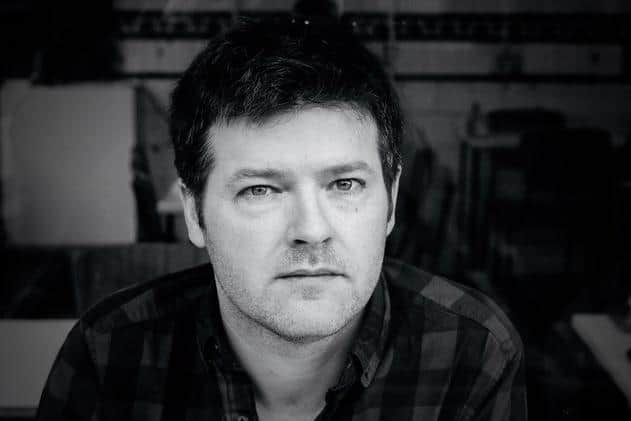David Fennessy on finding the opera in Herzog’s Fitzcarraldo
A monumental steamship is perched precariously halfway up a mountain in the Amazonian jungle, midway through a scarcely believable ascent from one river to another. It’s an iconic image – the defining one, in fact, from German director Werner Herzog’s 1982 movie Fitzcarraldo, where it serves to represent the obsessive ambition of Irish rubber baron Brian Sweeney Fitzgerald to construct an opera house in the middle of the rainforest. That ambition was matched by Herzog’s own determination to make his film – which notoriously took more than three years, involving deaths, dismemberments, plane crashes, even a small-scale war.
That image also grabbed the attention of Irish-born, Glasgow-based composer David Fennessy, who himself devoted several years to contemplating the film and the years of struggle that Herzog dedicated to it, delving ever deeper into its themes of obsession, egotism, even warped heroism. The result (or at least one result) is the 70-minute musical trilogy Conquest of the Useless (named after Herzog’s published Fitzcarraldo diaries), which the BBC Scottish Symphony Orchestra performs in November.
Advertisement
Hide AdAdvertisement
Hide AdWhat was it that Fennessy found so compelling about the image, and the stories behind it? “I was smitten just from seeing it, because it’s so absurd – as is almost everything surrounding the making of that movie. I remember saying to my partner: that’s an opera.” There was, he admits, a degree of obsession behind his own interest in Herzog’s film, the diaries and the whole tortured history of the shoot. “Looking back, I went down a rabbit hole and ended up writing four pieces around that subject, because it fed into a lot of things I was interested in anyway – like subverting the idea of the hero, or beauty and how it’s presented.”


The three-part work that resulted (we’ll return to Fennessy’s fourth piece shortly) offers just the kind of visionary excess and ambition to match the project it’s considering. “I needed big resources to paint a very big picture,” Fennessy explains, “and because the egos behind it are so huge. You’ve got Herzog and Fitzcarraldo, but also actor Klaus Kinski who plays him, and even Enrico Caruso – in some ways they’re all facets of the same ego at the centre of all this.”
The famously soaring voice of the legendary Italian tenor provides the inspiration for Fitzcarraldo’s operatic ambitions, and also features heavily in the second part of Fennessy’s trilogy. “It was the first section I wrote,” he explains. “I found hundreds of recordings of Caruso singing, and chopped out all of the highest notes, those moments of ecstasy, which I morphed into a kind of choir.” It forms a recorded backdrop to Fennessy himself on electric guitar, in what he describes as “a piece that’s always in climax”.
Before Caruso comes Fennessy’s Prologue: “It acts like a traditional operatic overture: I used material from the overture to Verdi’s Rigoletto, chopped up, put through a blender, used like a mass sampler in a way.” His concluding section – Gold is the sweat of the sun, silver are the tears of the moon – deals most directly with Herzog’s diaries, but it’s far from a conventional musical setting: Herzog is sung by a mezzo soprano (the esteemed Jennifer Johnston at the BBC SSO performance), while an actor (Brian Ferguson) prowls through the orchestra, subverting the performance.
As Fennessy has indicated, the gargantuan Conquest of the Useless isn’t even his only Fitzcarraldo/Herzog-inspired creation: his music theatre work Sweat of the Sun was unveiled in Munich in 2016. It’s the home town of Werner Herzog himself – which, of course, raises the million-dollar question: has the great man seen or heard any of this? “He famously hates anything that happens in a theatre or a concert hall,” Fennessy laughs. “His classic quote about it is: I hate opera – that’s why I’ve chosen to direct it. I did once have a fantasy that he might turn up, but I have long since disavowed myself of that. He didn’t come to see it, but I think he sent his sister, and she hated it.”
The BBC Scottish Symphony Orchestra performs David Fennessy’s Conquest of the Useless at City Halls, Glasgow, on 4 November, with a screening and discussion from 5.30pm